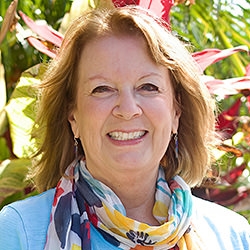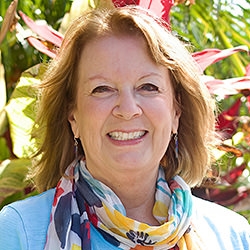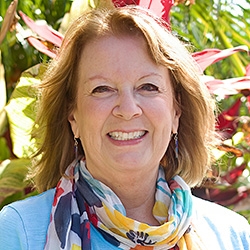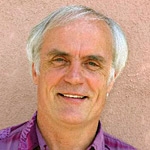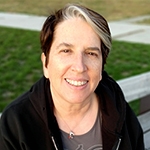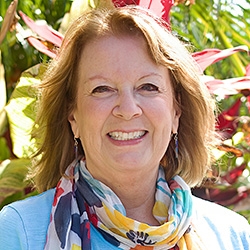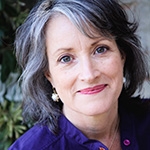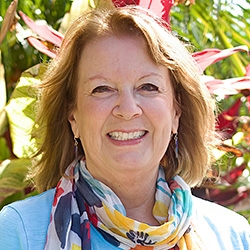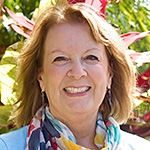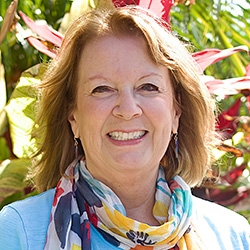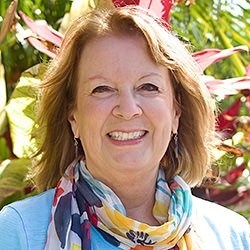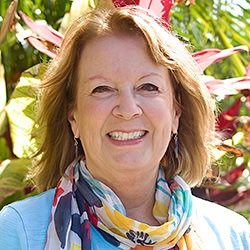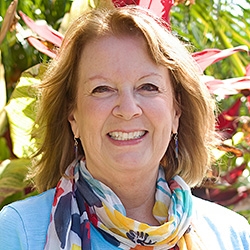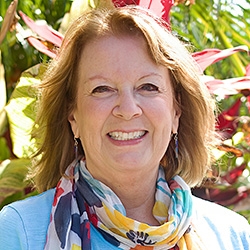
Search Results: dating
-
-
Eric offers some tips for nurturing and affirming ourselves as a daily practice.
-
October always makes me think about Marshall Rosenberg, the founder of Nonviolent Communication. He was born October 6, 1934. If he were still alive today (he died February 7, 2015), he would be 89 years old!
-
Less than 2 weeks ago from the time I’m writing this letter, Hamas militants crossed from Gaza into Israel and killed more than 1,300 people, most of them civilians. Israel then retaliated and killed over 3,000 Gazans, most of them civilians. The death rate continues to increase every day.
-
-
Trainer Tip: In Compassionate Communication, we consider needs to be universal. That means that while we all have the same needs, such as for love, support, shelter, food, joy, caring, etc., we choose different ways to meet our needs.
-
In this dynamic 4 session telecourse recording, Kelly Bryson provides practical skills to balance passion for self with compassion for others. You will learn to apply Nonviolent Communication to stop yourself from being intimidated, giving in or giving up, abandoning your own needs or resenting others.
-
- Integrate the underlying principles of NVC into your daily life
- Create a daily practice of self empathy and connecting to needs
- Strengthen your own personalized set of NVC skills
- Increase your sense of power in the world
- Deepen connection with yourself and those in your life
-
- Make use of felt-sense and somatic awareness to support faster and deeper shifts in yourself and others
- Master silent empathy to give more ease and flow in your empathy guessing
- "Streetify" your NVC practice by learning how to make your NVC practice more fluent, colloquial, and "natural" and match the person you're speaking with
- De-mystify empathy guessing by learning to identify key linguistic queues
- Build an "emergency empathy" tool kit---with "quick fixes" for challenging situations by using each step of the model for maximum effectiveness
- Interplay both the NVC "mindset" (consciousness/intention) and the NVC "tool kit" for greater ease, fluency and effectiveness
-
Trainer Tip: When you suspect someone is lying, consider how it may be less important what the truth is. Instead, notice whether your need for trust is met. Without blame, nor labelling. you can make specific requests to meet your needs, while also respecting the other person’s needs. Read on for more.
-
Join Linda Mia Mukte (formerly Rysenbry), CNVC Certified Trainer, for this uniquely powerful telecourse recording that blends NVC with Dr. Sue Johnson’s empirically validated work on adult love relationships called EFCT: Emotionally Focused Couples Therapy.
-
Trainer Tip: When we connect our feelings to our needs, we put ourselves in a postion to get our needs met and mourn when they aren't met. Here's a practical tip you can practice daily to improve the quality of your life.
-
Trainer Tip: The surest way to enjoy life is to do things that meet your needs. If you don’t enjoy a particular activity, consider the need you hope to meet by doing it. For instance, for each item you want to do consider the needs you're trying to meet. Connect to the joy of that need. Then for each ask: “How would I feel if I delayed finishing this item?”. Consider which items you want to continue, pause, or reprioritize. This can help increase life enjoyment.
-
Trainer Tip: All people long for understanding. It is such an easy thing to give, yet rarely do we see its importance in creating peace of mind.
-
Dear friends,
My book, Peaceful Living: Daily Meditations for Living with Love, Healing and Compassion has been on my mind a lot lately. It turns 20 years old next year, which I feel joyful about. Along the way, I came across this meditation that I wanted to share with you:
November 26
Change your thoughts and you change your world. – Norman Vincent PealeDeveloping Tolerance
I used to think that Chihuahuas were dumb dogs and bulldogs were ugly. Then one of my friends bought a longhaired Chihuahua named Tilly and another bought an English bulldog named Emma. Once I got to know these dogs and could see how truly sweet they are, it didn’t take long for me to fall in love with both of them.
-
-
I greatly enjoyed my New Year’s Peace Meditation yesterday as it brings together NVC enthusiasts from across the world. It is one of my favorite traditions for welcoming the New Year!
-
Recently, I have been pondering anger, how I express it and the jackal story I tell myself about it. Marshall Rosenberg taught that anger is a natural emotion that is based on a judgment of someone else or myself. I agree with this, so I have been doing some “enemy images” and self-empathy work (and praying for those who are most likely to be the recipients of my anger). My goal was to clear my judgments and take responsibility for my “stuff.” It has helped a lot, and yet I still feel a general anger in me that is not directly related to anyone or any specific situation.
-
Trainer Tip: We all have the same needs, but may prioritize different needs at different times -- and that order of prioritization may look different from other people's perspectives. If your prioritization of needs isn't the same as another's, that doesn't mean there's something wrong with you nor them. We can look for many ways to meet our prioritized needs.
-
Trainer Tip: In Nonviolent Communication, we consider love to be a need. Remember that needs are universal; everyone has the same ones. We all need love, but the ways in which we express it can be very different.


